beloved shades

Koren wastes no time in this concise text, briefly tracing the roots of wabi-sabi, the history of its obfuscation, and then laying out its qualities and principles with maximum clarity. Beautiful photographs accompany the delicately printed text and Koren provides an illuminating comparison with modernism, a masterful linguistic analysis, and many hints on where to look for wabi-sabi in the contemporary world.
Wabi-sabi is a Japanese aesthetics, difficult to describe clearly, perhaps because it is comfortable with ambiguity, because it invites sensory expansion by not revealing everything at once. Tanizaki explains it well in 'In Praise of Shadows' - wabi-sabi is the aesthetic of shadows. Koren finds it 'deep, multifaceted and elusive', an antidote to modern gaudiness, slickness, expensiveness. It can be ephemeral, but its expression is enriched by the effects of time, by corrosion and wear...
 2
2
Ideas that matter to A C G

I have issues with Grayling's views on religion
In general this is quite a useful book, providing an opportunity to organise odds and ends of knowledge, with introductions to subjects for further reading, even if the book suggestions are at times limited and unimaginative. Grayling is informative, but he is tiresomely pedagogical and does not attempt to resist temptation to irresponsibly condemn things he doesn't approve of, such as Islam, recommend things he does like, such as classics, and state opinions as fact.
My favourite article is the one on philosophy, which he characterises as the birthplace of other fields of knowledge, such as science, which gradually developed its own methodology and was eventually able to break off as a mature, independent field of meaning-making activity.
As a feminist I found his style and a number of his views questionable, particularly on feminism, on which he actually manages to be patronising, and ends by exhorting European women take up cultural imperialist white-saviouring. On vegetarianism (I speak as an aspiring vegan who hasn't eaten meat for fifteen years, for all the reasons you can think of) he is as shockingly lurid as distasteful animal rights group campaigns. Spoilt the mood there, Grayling
 2
2
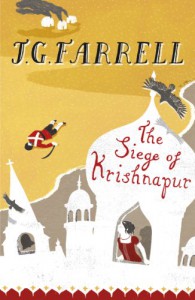
Young Farrell has done his research, and is perhaps a little over-zealous in exploiting opportunities to display his knowledge of Victorian warfare. Some of his grisly descriptions might have been spared. At times though, the narrative sparkles with good humour, irony and the flawed intelligence of interesting characters. Amateurish and overambitious as it sometimes seems, this book can't help coming to life in the personality of the Collector.
 5
5
Uneasy hour
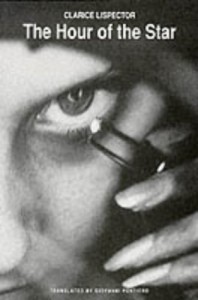
In telling the story of a 'meagre' character, an orphan from the poorest region of Brazil living in poverty in Rio, Lispector offers no philosophical certainty, proceeding from one diffuse reflection to another, usually conflicting one, while retaining a vice-like grip on the minimal narrative.
The dialogue is particularly masterful - somehow razor sharp despite the characters' limited capacities for insight. Macabea's exchanges with her boyfriend and with the doctor expose social ills both petty and profound, diagnosing between the lines where words fail horribly.
It's grim. But it has to be. I seem to struggle often with translations from Portuguese and this was no exception to that. Sometimes the images did not speak to me, coming from far outside my experience like 'the taste of a cigarette smoked the wrong way round'. Hard work, but well paid.
 4
4
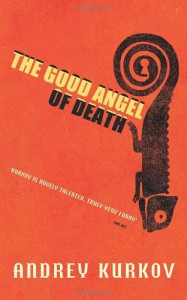
This spare, original narrative thrives on incident and coincidence, and sweeps into its wake an odd assortment of cultural heritage. The characters are lively, but lack depth, particularly the meek women.
 3
3
I will not tow the line

Hollinghurst's gay protagonist, Nick Guest, more or less ingenuously follows his sexual and aesthetic inclinations, which lead him, somewhat incongruously, into the house of Tory MP Gerald Fedden, the arms of a Lebanese millionaire's son, and finally personal disaster and tragedy.
The thin thread that binds and shapes Nick's muddling way through his life is beauty, and his trajectory is in a way a test of its strength and worth. Hollinghurst holds up for us the thinness of beauty and the foolishness of its worship, yet when Nick's ostensibly hollow collaboration with shallow, materialistic, philistine Wani comes to unexpected glorious (but limited) fruition we are invited to reconsider. Beauty is a heartless god, the book admits, but impossible to deny. And sometimes those who struggle and suffer in its service are richly rewarded...
I've had a some discussions with an artist who believes that beauty is a concept that should not be applied to people at all. I said I can't deny the 'tingling in the spine' induced by beauty and she responded 'it's not anyone's purpose to make your spine tingle'. I totally agree with that - but I still can't stop my visceral response to and pleasure in beauty, whether I'm looking at a sunset or a person. The conversation prompted me to think hard about this, and to see how personal beauty being instrumentalised has a regressive effect, reinforcing hierarchies and layers of oppression. On the other hand, if beauty is visceral and inextricably related to positive identification and sympathy, we need to work hard to pull the encultured hierarchies from it. I'm thinking more now about dismantling the whiteness of beauty, the youthfulness and thinness of beauty, all of which are arbritrary and exist because they serve white supremacist capitalist patriarchy. Decapitalise beauty! But I'm still working out how to frame this issue and how to reconstruct my appreciation. Here, structures of class and heterosexism pervade relationships, but Hollinghurst only offers them in the way Fitzgerald offers images of an unwholesome lifestyle he can't escape. There is little interrogation. And as in Fitzgerald, there's no redemption.
The characters here are delicately drawn, never rendered without colour and shade, and Nick himself shares his creator's insight and empathy for others. I had deep sympathy for this soul, and felt a mixture of admiration and disapproval!
 4
4
Women do

Greer cuts through our absurdly patriarchal fantasies of romantic love, diagnosing the misery and anxiety they cause, and draws a picture of the female stereotype as castrated - a a passive receptacle for male sexuality. She also implicates capitalism in shaping and reinforcing patriarchy, with some great passages on the history of women in work.
There was far less visibility of trans issues and trans people when this was written and Greer's discussion of the female body in this book certainly has some dated aspects, but that doesn't stop it from being an important work in the history of feminism. It's also highly readable, non-technical and funny.
 5
5
Life as period costume

A densely woven account of connected families growing and changing over the late Victorian period up until the end of WWI. Byatt centres her narrative on the lives of the children, following their development and emotional perspectives. The book is openly aestheticising at the expense of pure realism, aiming for the elegant, stylised naturalism of art nouveau that supplies so much of the historical detail. I deeply enjoyed the tale and the telling, particularly Philip's story, which resists high drama apart from the uncomfortable child abuse subplot.
Elsie, the working class girl, is a challenge for Byatt, an unusual character whose story feels underwritten, but at least she defies stereotypes & romanticisation by being frankly interested in sex and smart clothes. The suffrage movement and the war receive intelligent attention. The most satisfying sections are about Anselm Stern, the genius puppeteer, and his sons. Artistry is the theme with which Byatt deals most effectively, illuminating the reality of hard, prolonged work of creation by personalities so well drawn they feel like friends.
Byatt has a way of appreciatively writing about clothes which I love and find inspiring: she imbues them with sensual pleasure, artfulness and delight, and always uses them to create ambiance and develop character.
 7
7
Universal Acid

Philosopher Dan Dennett argues that the theory of natural selection is a 'universal acid', burning through our basic ideas about science and beyond, leaving a completely changed intellectual landscape. The revelation that mind did not design life inverts the traditional Christian-derived pyramid. Dennett shows that evolution needs 'no skyhooks' - no supernatural powers - and instead produced us and our artifacts and ideas using 'cranes', artefacts and strategies that accelerate development (the image derives from the fact that a small crane can be used to erect a larger one). He explains and answers the critiques of opponents to orthodox neo-Darwinism, and points out pitfalls on both sides, for example distinguishing sensible (in fact, tautological) reductionism from 'greedy reductionism' (one culprit in the latter category is behaviourism in psychology: Skinnerians who believe that all behaviour is a function of operant conditioning. The inadequacy of such theories has been demonstrated by, for instance, the research of linguists like Chomsky)
Dennett points out that natural selection is an algorithmic process, and carefully examines the implications for science and philosophy, including ethics. An interesting consequence is support for the possibility of artificial intelligence (since consciousness is not magic, but arises from biological phenomena: the mind is in the brain). He develops the idea of 'memes' as mental analogues of genes; symbiotes evolved to live in minds, making persons of the humans they infest and hyper-accelerating life's trajectory through design-space.
"The prize is, for the first time, a stable system of explanation that does not go round in circles or spiral off in an infinite regress of mysteries. Some people would prefer an infinite regress of mysteries, apparently, but in this day and age the cost is prohibitive: you have to get yourself deceived. You can either deceive yourself or let others do the dirty work, but there is no intellectually defensible way of rebuilding the mighty barriers to comprehension that Darwin smashed."
 4
4
 5
5
Seeking enchantment, finding its houses

Eliot is a gentle traveller with distinct interests and biases. His view of Iran is dominated by friends, encounters and monuments. He is interested in art and religion but not in politics. His perennial struggles to avoid being ripped off by taxi drivers and museum staff lighten the mood and the frustrations of life under theocratic rule are well drawn with a light touch. The obsessive attention to architecture can be tedious to those uninterested in the topic!
 5
5
Ten Things
1
I am an anarchist - against all forms of hierarchical domination. I try to be active in deconstructing and dismantling them. Obviously I am anti-racist, feminist etc etc etc
2
I am trying to decolonise my mind. I am against all forms of imperialism
3
I am trying to stop thinking in binaries
4
I love to eat. I have been strictly veggie since age 14 but now try to live mostly vegan. All the reasons apply: global food justice, environment, health, preference. I'm not an evangelist and I recognise how my luxury lifestyle choice is positioned within white supremacist capitalist patriarchy. I love raw vegan desserts, chocolate and anything with coconut like visiting http://www.theppk.com/ and even more http://www.thisrawsomeveganlife.com/
5
I love dance. I love doing dance and also playing music. I lament that we don't do more of this in community contexts. I used to do capoeira and was in heaven. It's not about showing off, but about fellow-feeling, axe, sharing & the body as a site of pleasure... I also love seeing contemporary dance shows, especially edgy experimental work.
6
I'm an introvert. But trying to spend more time with folks offline as well as making more contact online. I believe 'without community, there is no liberation'
7
I always use literature to push and challenge my thinking. I always try to wake up critical consciousness. My political awareness is my lens
8
I'm an educator. I teach English and science one-to-one. This is such a great job for me! I love my students. I bring my politics to what I do (this doesn't mean indoctrinating kids as should be obvious: my politics is about teaching critical thinking and liberation. It is inimical to violence and coercion)
9
I'm asexual, but I guess homoromantic/political lesbian. I don't ever want to give birth, but I would like to adopt an older child/teen
10
I live in London & I love it, but I have itchy feet, and dream of running away and living in a field somewhere, generally when the government unleashes a fresh wave neoliberal bile. Totally impractical fantasy as I'm a clean freak, have an extremely low threshold for physical discomfort and love wearing beautiful clothes.
My favourite Greek dramatist
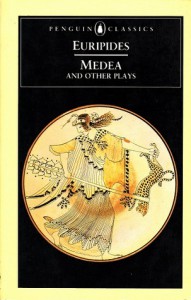
With beautiful clarity and realism, Euripedes crafted dramatic interpretations of Homeric tales with moral subtlety and timeless resonance. I will definitely keep coming back to this collection.
 5
5
Through the eyes of a stranger
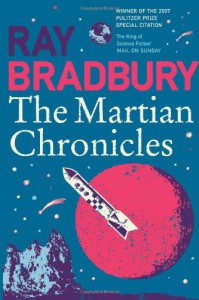
Bradbury's imagination draws on midwestern American culture, iconography and mythology to imagine a future history of human interaction with Mars. A profound cold-war pessimism informs his vision.
Bradbury offers a wide ranging, if somewhat simplistic critique of patriarchy, racism, greed and materialism. His style is rooted in the culture he decries and at times becomes sickening.
 4
4

Bachelard, taking the role of phenomenologist, has dived down through the shifting mirror surfaces of communication to bring up pearls of whole meaning. He leads us to apprehend the power of poetic images based on emotional, existential, truth.
 2
2
The heart & stomach of a man

Philip Philipovich, surgeon, reproductive expert and refined borgeois gentleman, makes the grievous error of transplanting a human pituitory gland and testicles into a mongrel he has enticed with a piece of sausage. The dog is unexpectedly transformed into a human, taking on the unprepossessing doggy personality of the deceased donor.
The horrible consequences of the hero's mistake provide a very roadworthy vehicle for social commentary and criticism.
 2
2



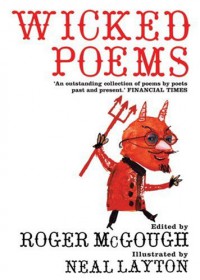
 7
7